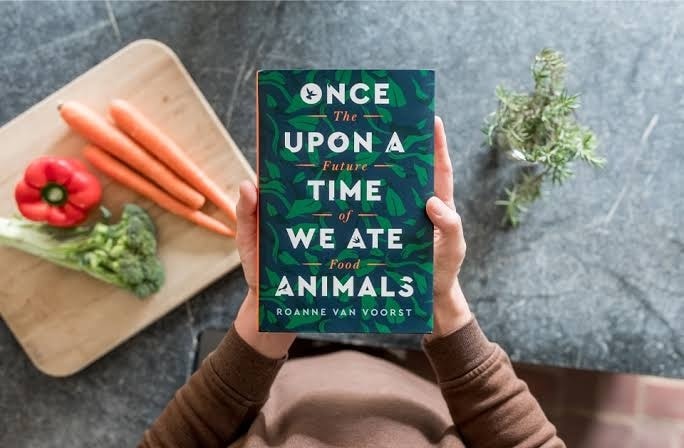Once Upon a Time We Ate Animals: A Reflection on Food and Ethics
Introduction
“Once Upon a Time We Ate Animals” by Julia McGavin explores the complex relationship between humans and animals, particularly in the context of food. This thought-provoking book delves into the historical, cultural, and ethical dimensions of our dietary choices, encouraging readers to reconsider their connection to the animals we consume.
Key Themes
- Historical Context of Meat Consumption McGavin traces the history of human diets, examining how the consumption of animals has evolved over time. She explores the origins of meat-eating, the role of agriculture, and how societal changes have influenced our food choices. Understanding this history provides insight into our current dietary practices and cultural norms.
- Cultural Perspectives The book highlights how different cultures view animals and meat consumption. It explores various culinary traditions and the significance of animal products in cultural identity. By acknowledging these diverse perspectives, McGavin encourages readers to think critically about their own cultural biases regarding food.
- Ethical Considerations A significant portion of the book addresses the ethical implications of eating animals. McGavin raises important questions about animal rights, welfare, and the moral responsibilities of consumers. She encourages readers to reflect on the consequences of their dietary choices and consider the impact on animals and the environment.
- The Environmental Impact McGavin discusses the environmental consequences of animal agriculture, including issues like deforestation, greenhouse gas emissions, and resource depletion. She highlights the urgent need for sustainable practices in food production and the potential benefits of reducing meat consumption for the planet.
- Personal Choices and Alternatives The author advocates for conscious eating, encouraging readers to explore plant-based diets and alternative protein sources. She provides practical suggestions for incorporating more vegetarian and vegan meals into daily life, emphasizing the health benefits and ethical considerations of such choices.
- Reimagining Narratives Throughout the book, McGavin challenges the traditional narratives surrounding meat consumption, urging readers to rethink their relationships with animals and food. By sharing personal stories and insights, she invites readers to create a more compassionate and informed approach to eating.
Conclusion
“Once Upon a Time We Ate Animals” is a compelling exploration of the intersections between food, culture, and ethics. Julia McGavin’s thought-provoking insights encourage readers to engage in meaningful conversations about their dietary choices and the implications of those choices on animals, the environment, and society as a whole. By fostering a deeper understanding of our relationship with food, the book inspires a more compassionate and sustainable approach to eating.
